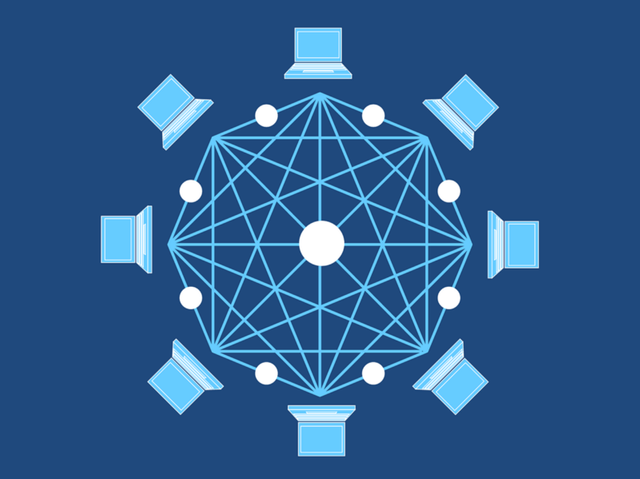
Many experts believe that we are truly in the fourth digital revolution. Technology has become smarter by several degrees of magnitude in a relatively short space of time. There are many complex and intuitive technological solutions being developed in many places around the world. The digital technology arena has arguably witnessed the greatest volume of activity. Within the digital technology sphere, blockchain technology has emerged as one of the leading lights in the industry.
2017 has been a breakout year for blockchain technology. While the jury might still be out regarding cryptocurrencies, there is virtually no doubt in anyone’s mind that blockchains hold the key to unlimited technological possibilities. Everyone from entrepreneurs to large corporations and even Governments are developing useful blockchain-based applications.
The crowdfunding arena has already been disrupted in 2017 by ICOs. Traditional VC crowdfunding models have been overtaken by ICOs as the preferred crowdfunding method for blockchain-based startups. This has allowed successful ICOs like Bancor, Tezos, and EOS which have raised millions of dollars. Many of these projects are now in advanced testing phases and beta versions will soon be ready for testing.
With blockchains finding more applications in diverse fields of human endeavor, expectations are high for the coming year. This article examines 2 blockchain technology trends to watch out for in 2018.
1. Blockchain and the Internet of Things (IoT)
Since 2014, it has become apparent that blockchains can be applied to more than just finance and fintech applications. The Ethereum blockchain and its introduction of the smart contract framework has opened up new vistas of possibilities. Many experts believe that blockchain technology holds the solution to some of the problems plaguing the successful implementation of the IoT.
What is the Internet of Things?
The IoT is an extension of the Internet communication protocol to include every conceivable physical thing on the planet. It is essentially a network of devices, animals, people, vehicles etc. all able to communicate and exchange data. By using an array of sensors, actuators, RFID chips, and other network connectivity devices, everything on the planet will be connected to the internet. When successfully implemented, machine to machine (M2M) communication without the need for a human interface will be possible.
Many stakeholders in the IoT development sphere are exploring the potential applications of the blockchain to the IoT model. One area of interest is the security scheme for distributed devices in a network. The current enterprise security protocols cannot handle the demands of the IoT. Problems stemming from the scale and the distributed nature of the data points means that centralized security setups will be unable to handle problems with an IoT network.
Blockchain — IoT Implementation
Blockchain technology has the potential to provide a scalable and secure security framework for the IoT. The blockchain at its core is theoretically tamper-proof. By implementing a decentralized ledger framework for all data points, the IoT can become immutable. As an added bonus, the secure blockchain framework is also cost-effective and provides faster transaction speeds.
In 2018, blockchain is likely to see greater levels of integration and implementation within the global IoT construct. The need to eliminate all single points of failure from the new digital infrastructure being created as a result of the IoT. Blockchains have already proven to be a robust decentralized model that prevents malicious attacks through single points of failure. With data integrity being an even greater concern to the fidelity of the IoT, it is beyond doubt that blockchains will play a leading role in its development in 2018.
2. Blockchains and Artificial Intelligence (AI)
The quest for artificial intelligence has been a long-standing one. Ever since the emergence of computers, scientists have been looking for ways to develop thinking machines. AI is basically an algorithm that allows machines to exhibit functions that they weren’t programmed for. The most complex devices on the planet still only work within the limits of their programming algorithms. When successfully implemented, AI will birth machines that can quote “learn how to learn.”
Just like in the case of the IoT, the blockchain has been identified as having the potential to facilitate certain aspects of the AI implementation. In order to function to its fullest capacity, machines capable of learning require access to “big data.” The majority of the big data available for mainstream use is reserved for analytics. Exchange of big data hasn’t been economically feasible but with the aid of the blockchain, this could all change.
Blockchains can provide a secure environment for big data owners to connect with AI developers. By so doing, complex machine learning algorithms can be developed to help smart devices take advantage of the data available to them in order to achieve artificial sentience.
Final Words
The times ahead promise a great deal of innovation across several spheres of human life. Blockchain technology has the capacity to integrate and offer viable solutions to many of these advancements. As the protocols become more advanced and data points become more dispersed, network security becomes an even greater concern. This is where blockchain technology with its theoretical immutability and robust security becomes key to the successful implementations of these protocols.
Hi! I am a robot. I just upvoted you! I found similar content that readers might be interested in:
http://news.fundyourselfnow.com/2018/01/03/latest-blockchain-trends-watch-2018/
Downvoting a post can decrease pending rewards and make it less visible. Common reasons:
Submit